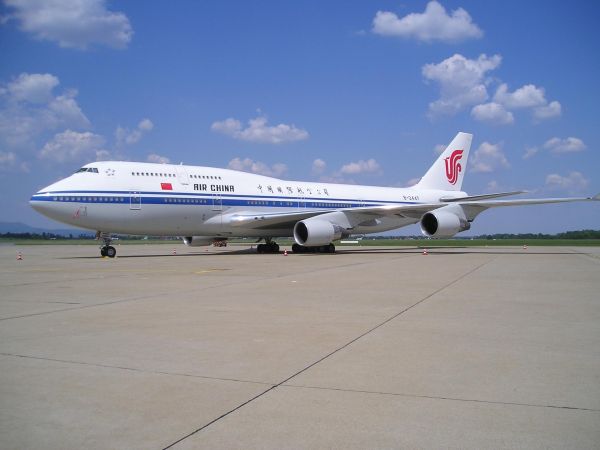

Highlights from the EO print edition, No. 637, Sep 16, 2013
The Pitfalls of SOE Overseas Investment
News, page 1
~ Data from the China Enterprise Confederation showed that 47 centrally-controlled state-owned enterprises together had overseas assets of 3.8 trillion yuan by the end of 2012, with overseas revenues reaching 4 trillion yuan.
~ According to data released by PricewaterhouseCoopers, in the first half of 2013, the number of overseas mergers and acquisitions carried out by Chinese mainland enterprises was only 78 – the lowest number since 2010.
~ “Chinese enterprises have been going overseas to invest for ten years,” said an official in the Foreign Investment Department of the National Development and Reform Commission (NDRC). “From the perspective of assets size, we’ve gained a lot. But the failures have outnumbered the success stories - especially in areas like mineral resources.”
~ He Zhengwei (和振伟), deputy secretary-general of China Industrial Overseas Development and Planning Association, told the EO that the centrally-controlled SOE investments overseas often involve tens of billions of yuan and can be very risky. In He’s view, inadequate assessments in early stages of investment, irrational decisions, inflexible coping mechanisms and a lack of effective supervision are all major reasons.
~ Now, the relevant government departments are changing attitudes towards Chinese enterprises’ overseas investment. The official from the Foreign Investment Department of the NDRC said that China urgently needs to strengthen supervision on foreign investment - especially when it involves state-owned assets. He says stricter approval and accountability mechanisms need to be established.
Original article: [Chinese]

Henan Warns of Black Holes in China's Grain Reserves
News, page 2
~ A recent corruption scandal that engulfed senior officials from Sinograin in Henan Province is having an impact on how the country's grain monopoly functions.
~ Li Changxuan (李长轩), the former general manager of the Henan branch of China Grain Reserves Corp (SinoGrain) (中国储备粮管理公司河南分公司) - the grain monopoly that manages the State grain reserves, was handed a life sentence in July for accepting over 14 million yuan in bribes and for possessing 8.9 million yuan in assets that could not be explained. Corruption within Henan's grain industry, which produces about 10 percent of China's annual grain harvest, has been a serious problem in recent years.
~ Cao Pusheng (曹濮生), the former head and party secretary of the Grain Administration of Henan Province (南省粮食局), was also detained on suspicion of corruption in late 2011 and altogether over 100 people have been charged in related cases.
~ There are still seven or eight officials under investigation, though it's estimated that all the cases will be wrapped up by the end of this year.
~ People who work in the Henan grain industry told the EO that 140,000 tons of fake grain purchases and sales were swirling about in the Henan grain market. The local grain store would falsely declare it was purchasing grain from a farmer in order to take advantage of the government subsidy to grain growers. This not only enriched the grain stores but also distorted data on China's grain supplies.
~ Some are urging the related authorities to launch a nationwide investigation into the existence of other "black holes" in the grain system. By getting a better handle on how much grain is actually held in the national reserves, the country will be able to improve its management of grain reserves and grain purchase policies.
Original article: [Chinese]

Behind China’s Plane Ticket Prices
Corporation, page 25
~ Li Qiang is a salesman that flies frequently for work. Recently, he found that a plane ticket from Beijing to Yantai, Shandong is more expensive than from Beijing to Hangzhou, Zhejiang, even though the distance between the former two is actually much shorter. He wondered why.
~ The price of air tickets is thought to be generally based on mileage, with 0.75 yuan per kilometer flown as the standard. For instance, the 1,300 km trip from Shanghai to Beijing should be no more than about 1,100 yuan. The Civil Aviation Administration of China tries to regulate the price so it doesn’t exceed these standards. However, there are no lower limits on pricing.
~ Some may think that although the distance from Beijing to Hangzhou is longer than Beijing to Yantai, there are more passengers to Hangzhou, so the volume makes tickets cheaper. However, an industry insider Gao Zhen says, “This is absolutely not the reason. Price has nothing to do with distance.”
~ Though most airlines operating in China are state-owned, there’s actually fierce competition among them. While the route from Beijing to Yantai has only two competing airlines, the route from Beijing to Hangzhou has five, making the price war fiercer.
~ Another reason for the disparity in pricing has to do with customer demands. For example, there are more businesspeople on flights from Beijing to Shanghai than Beijing to Hangzhou. Though the distance is similar, the business-oriented passengers to Shanghai aren’t as sensitive to price as the tourism-oriented passengers to Hangzhou are.
Original article: [Chinese]


